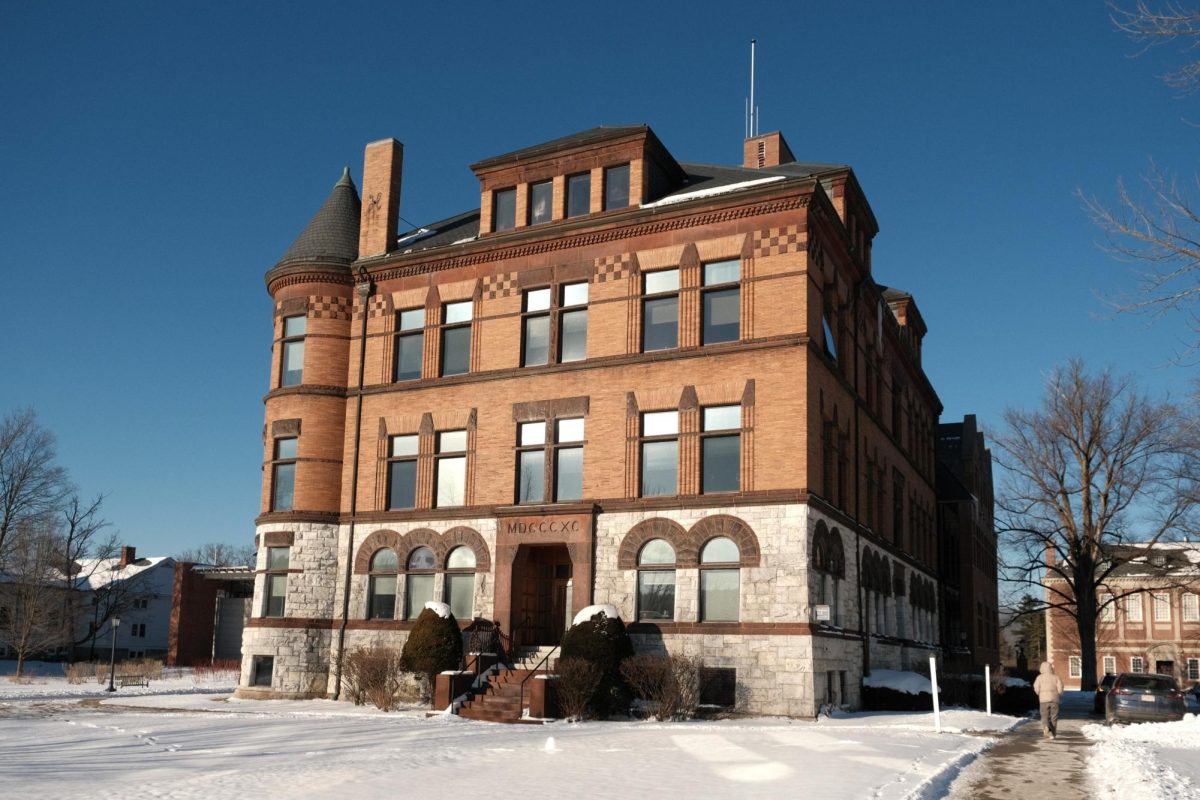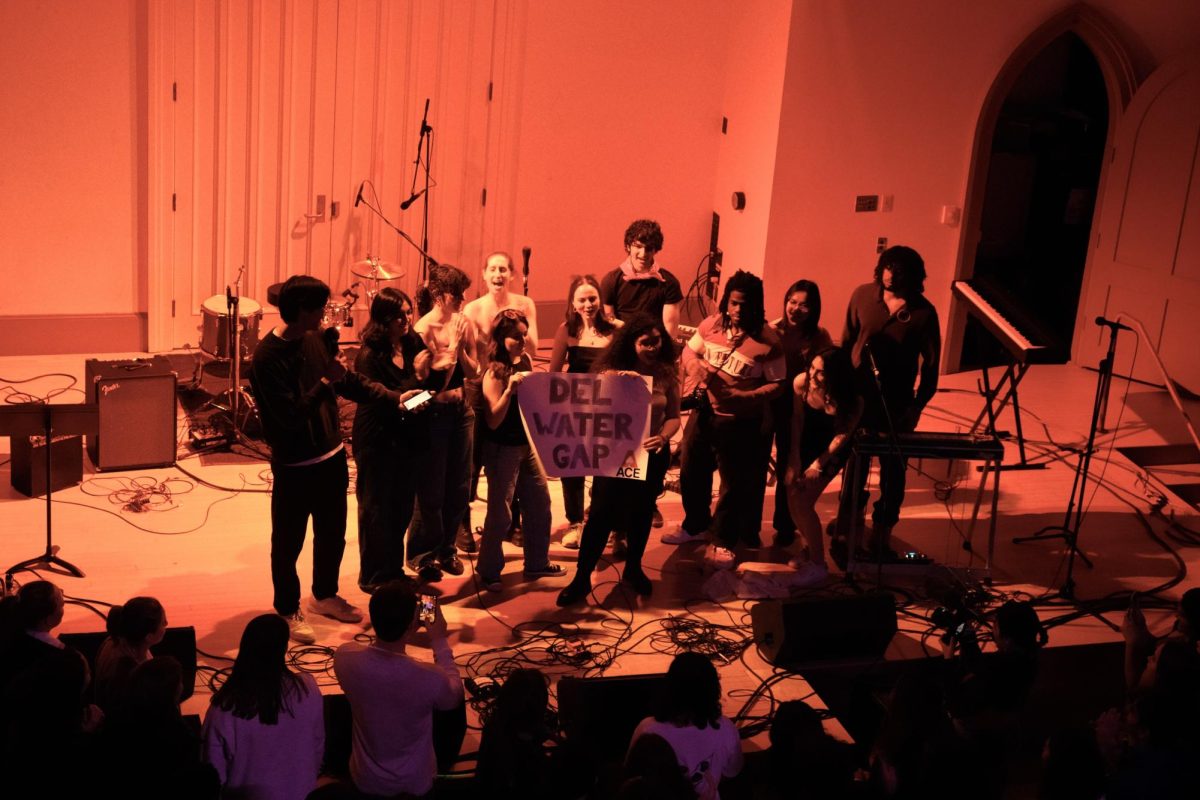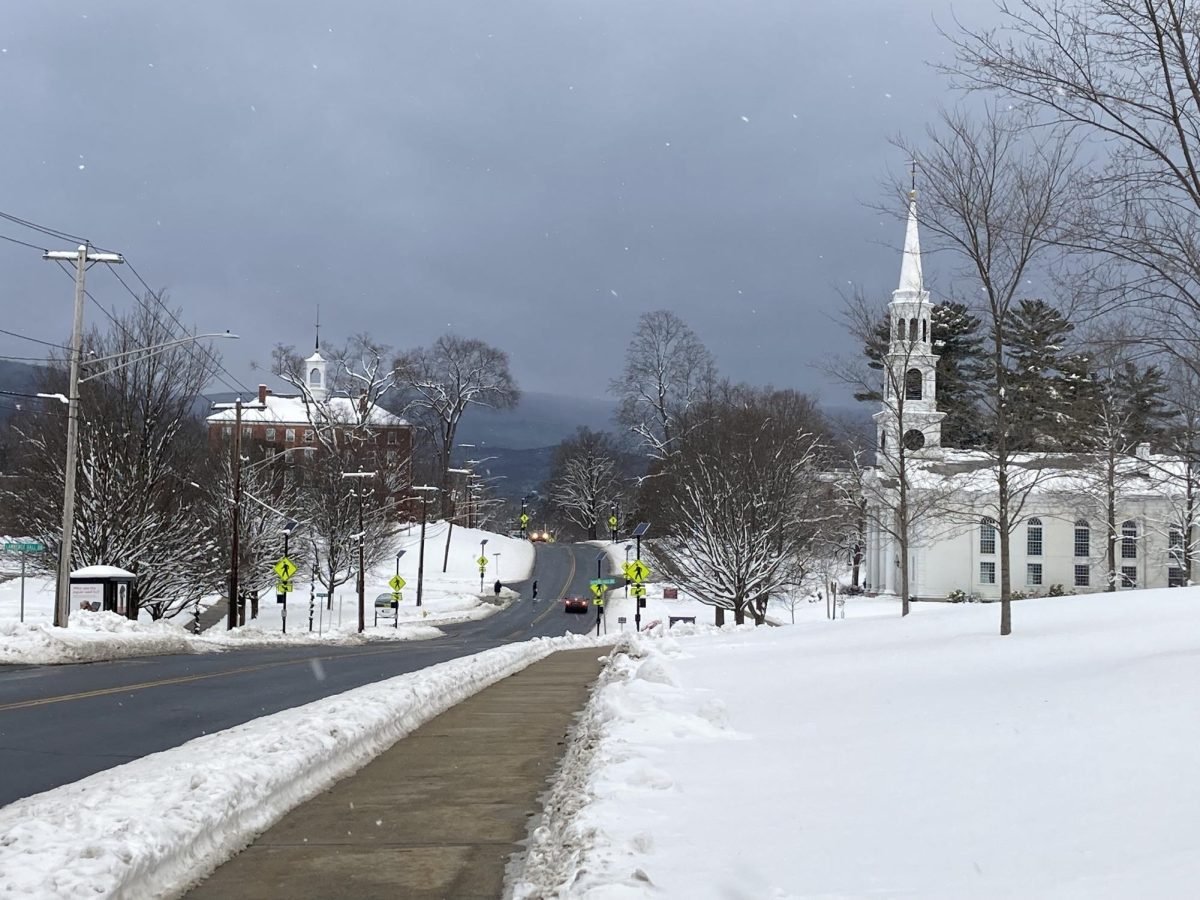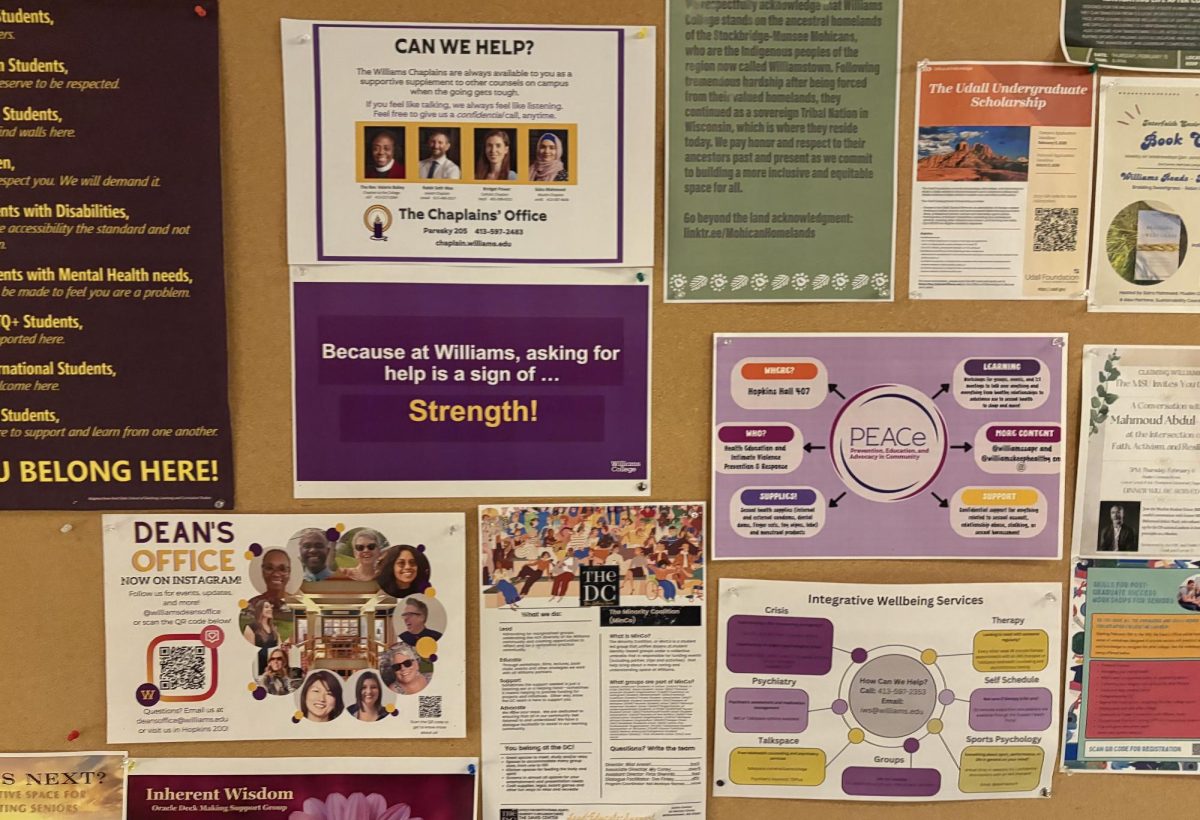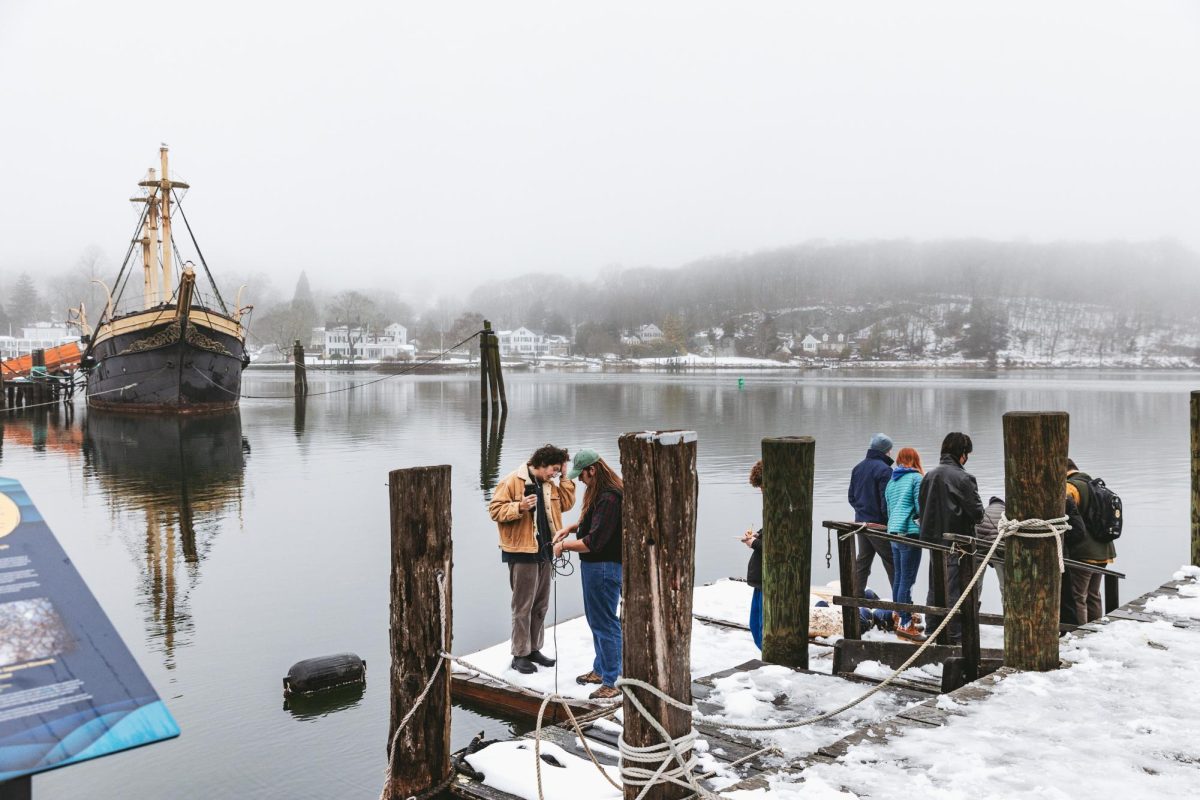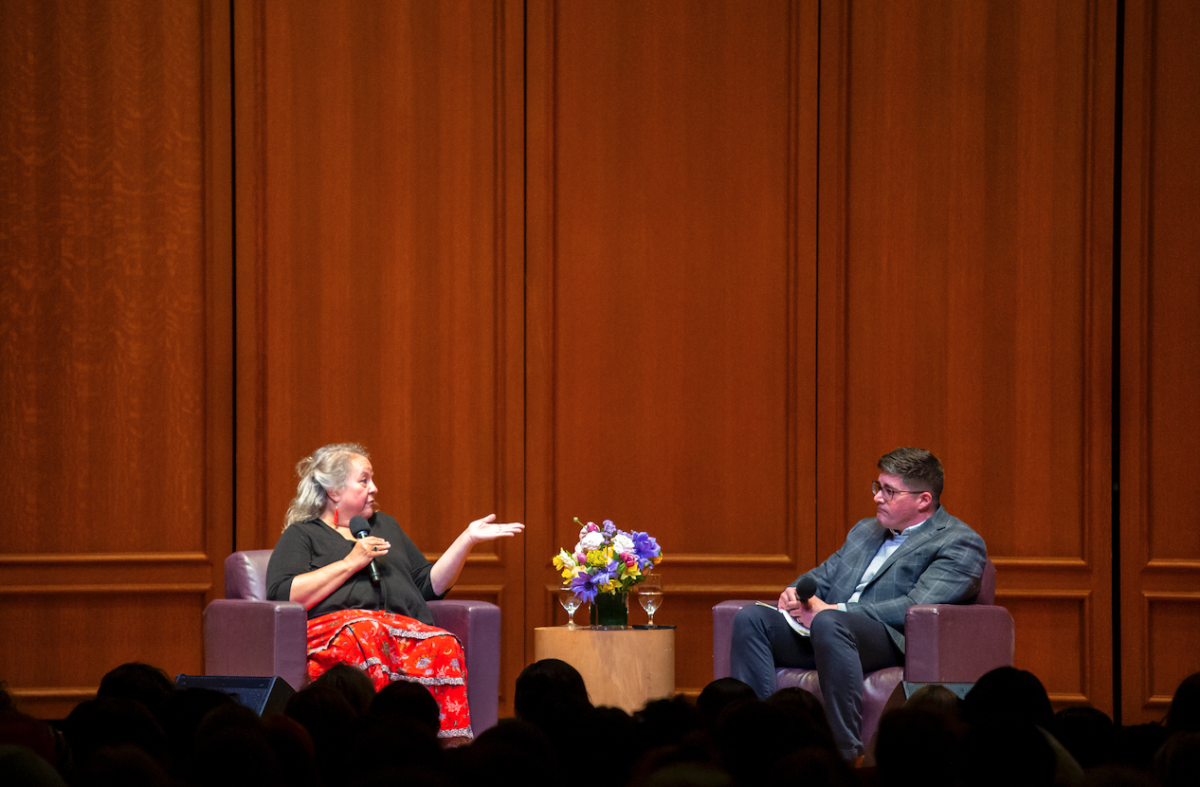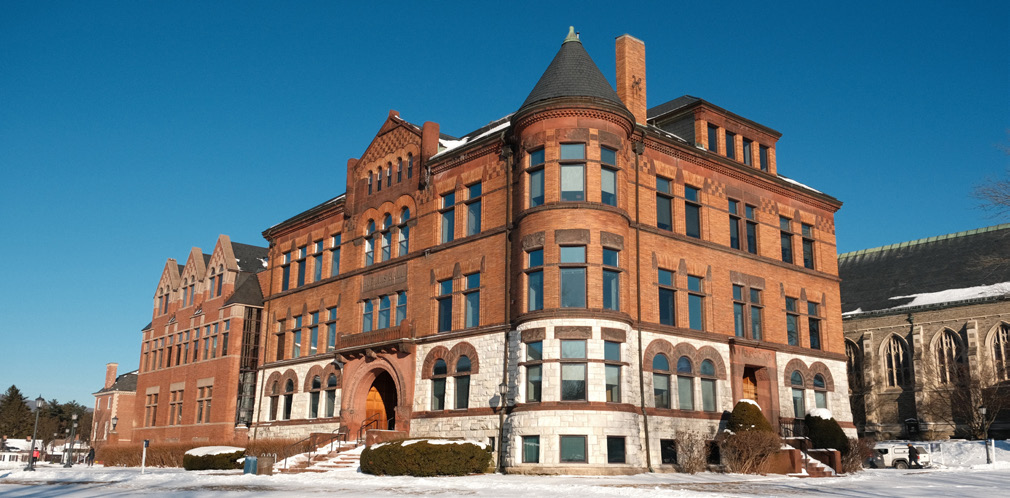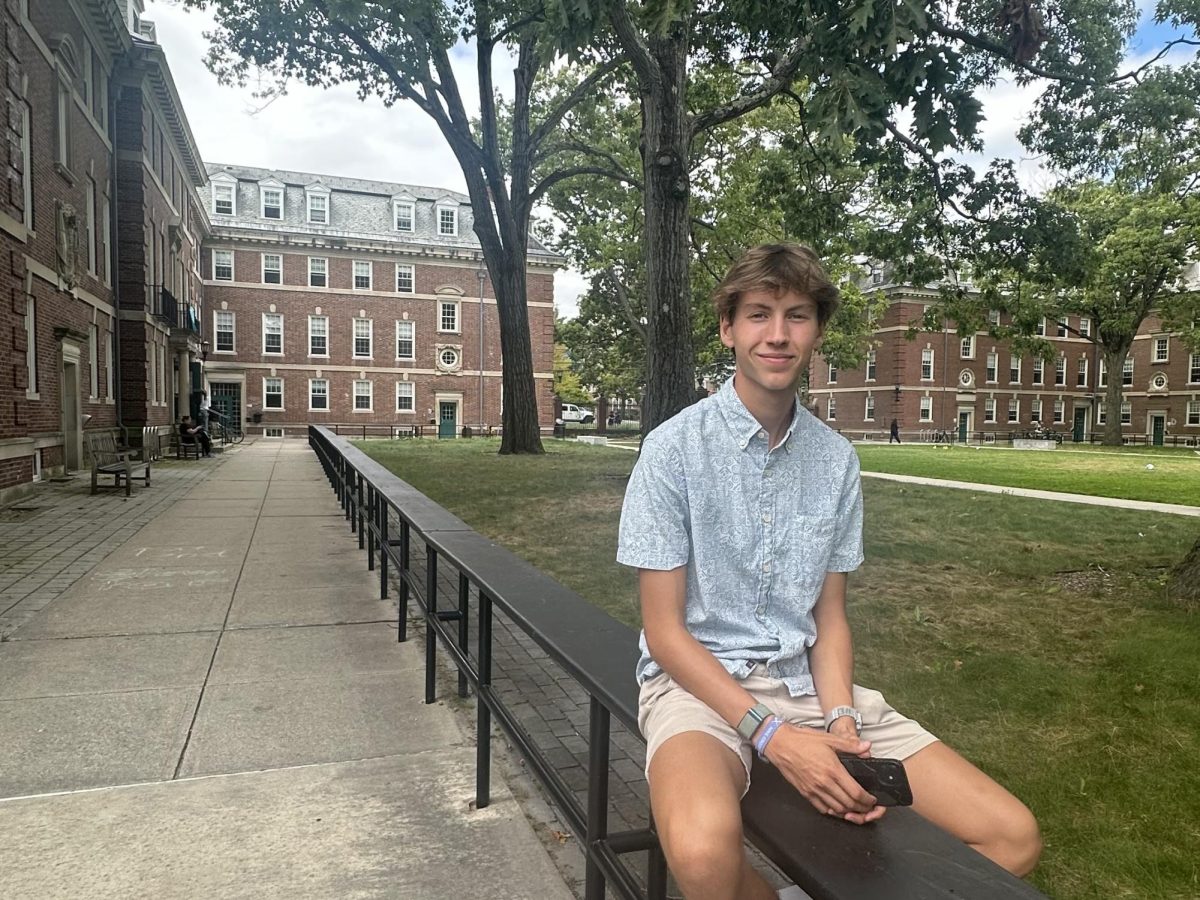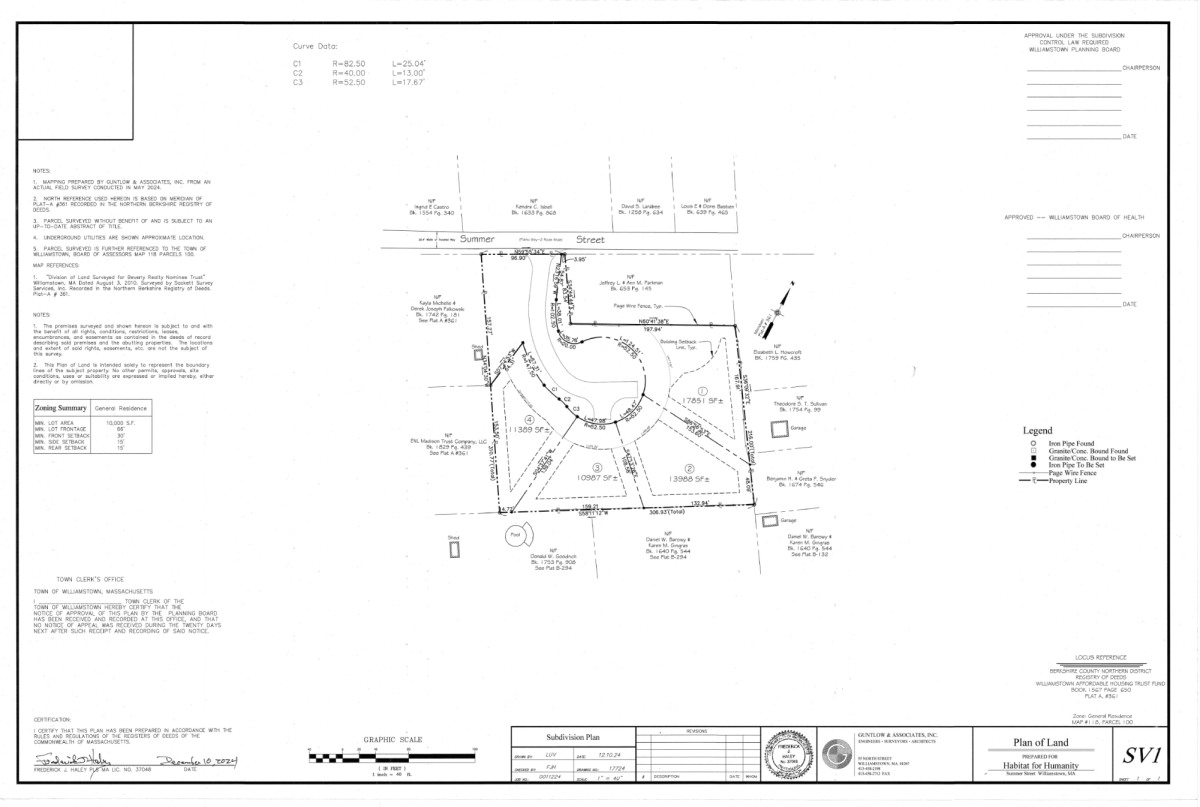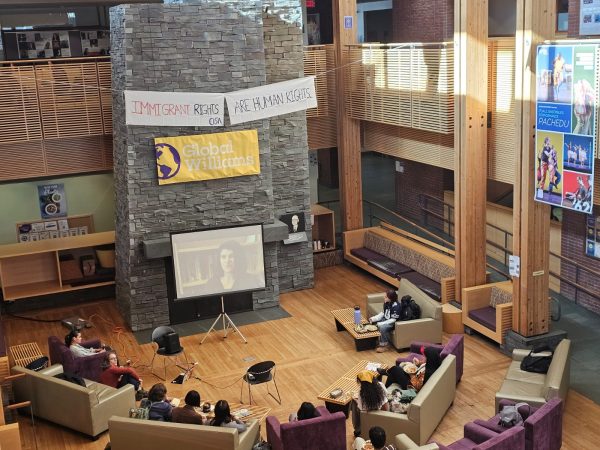
The Coalition for Immigrant Student Advancement (CISA), as well as several other students, hosted an open mic event in Baxter Hall on Nov. 18. At the gathering — which began at 12 p.m. and continued until approximately 4 p.m. — students shared their thoughts and perspectives on the presidential election and its potential impact on students at the College. Prior to the event, CISA hung a banner above the speakers that read, “Immigrant rights are human rights.”
In addition to commenting on the election’s impact on marginalized communities — the original focus of the event — students also voiced opinions about a variety of other issues, including the ongoing war in Gaza, political apathy among students at the College, and the administration’s response to recent bias incidents on campus.
Liam Carey ’27, who assisted in organizing the event, told the Record that he began planning directly after the election. “I started having conversations where people mentioned they wished people would say stuff,” he said. “We started reaching out to people and asking, ‘Would you want to do an open mic and just process this collectively — let all our rage, grief, and fear out and maybe start trying to figure out what we can do to keep fighting?”
The organizers modeled the event after a similar open mic gathering, “Unsafe Unsound — Occupy Baxter,” which took place the day after Donald Trump was elected president in 2016. At the start of the event, the organizers screened a video from CISA’s archives that documented the event eight years ago.
Estefany Lopez-Velazquez ’25, co-chair of CISA, told the Record that the event aimed to raise awareness about the experiences of immigrant students and called on President Maud S. Mandel to protect them. “It was an effort from CISA to remind the administration, students, and the general Williams community that the election outcome was difficult for a lot of students, especially for immigrants and undocumented students,” she said.
She added that she thinks the College has a responsibility to address student fears following the election. “We don’t have a statement from Maud yet — we don’t know if the school has plans for how to protect students,” she said. “The school should be thinking about its most vulnerable students right now. The fear of deportation is a really real thing.”
In their speeches, some students criticized the apathy that they sensed from their peers following the election. “Us being here, having this open mic in Baxter, a lot of people just think like, ‘Oh, these weird kids are yelling and being angry,’” one student said. “I’m like, ‘Why aren’t you upset? What is normal apathy? Why is it normal to literally not give a single fuck about the lives of other human beings?’”
Another student echoed this sentiment in their speech, calling on students to act. “We are so privileged, and you have so much power, and you don’t use it,” they said. “Why?”
Several students drew connections between the College today and what they described as its problematic history. “There’s this idea that people’s guilt absolves them of being accountable for their actions, their complicitness, their inaction,” one student said. “In and of itself, the choice to go here — me, being here at Williams, I am a part of the problem… Williams could not exist without having murdered and slaughtered Indigenous people, displacing Black people from their homes.”
Students also expressed frustration at the College’s response to recent bias incidents. Director of Campus Safety Services Jeff Palmer alerted community members on Nov. 3 that a table in Frosh Quad was damaged and vandalized with anti-Israel and antisemitic writing. The following day, Mandel sent an all-campus email addressing recent “identity-based attacks” on community members, including the vandalism and multiple instances in which Black students and other students faced verbal and physical attacks.
One speaker specifically criticized what they saw as the College’s failure to adequately support Black students. “Not only has the Chaplains’ Office given more attention to a table than Black lives, Maud has as well,” they said. “And I think that is completely unacceptable, and they should be ashamed of themselves.”
Shaza Mousa ’27, who spoke at the event, expressed appreciation for the open mic event to the Record. “It was people actually talking to each other face to face and not yelling at each other through a million responses to op-eds — where it can become about making an argument and trying to prove someone wrong,” she said. “It was an open and honest space where people [could] be vulnerable and not have something prepared to say and just share their feelings and how they are impacted personally.”
She also stressed the importance of the event’s location in the Paresky Center. “There’s a lot of general dissatisfaction and vitriol for the administration and the way it has handled so many of the incidents that have happened recently,” she added. “It’s important that we are in Baxter when everyone is there, so that people who wouldn’t have listened otherwise are forced to.”
Michelle Ametekpor ’27, one of the students who spoke at the event, emphasized the need for such spaces on campus. “I think that people at Williams operate on this selfish, individualistic level,” they said. “If something doesn’t directly affect us or our friends, we don’t show up for others. It was important to use this space to just disrupt the apathy problem that we have at Williams.”
As the event concluded, Carey encouraged students to continue creating spaces in which students can reflect and process together. “Talking to each other is perhaps the most important part of any revolutionary movement,” he told the crowd. “I don’t think that’s something that happens enough at this college, and I want it to continue to be very public.”



